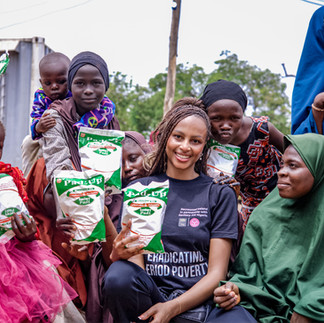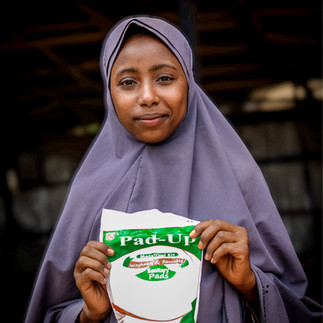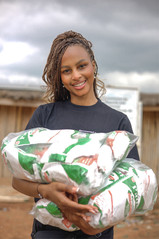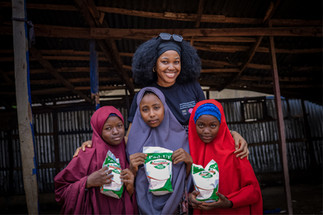Dignity is a Right, Not a Luxury: Our Visit to the Internally Displaced Persons Camp in Abuja
- Recrowned Ireland

- Jun 12, 2025
- 3 min read
By Aishah Akorede
Founder & Organiser, Recrowned Ireland

Period poverty is a quiet crisis, one that hides behind shame, stigma, and silence. It affects millions of women and girls around the world, preventing them from accessing safe, hygienic, and affordable menstrual products. And while this issue is present in Ireland, it takes on a different and often harsher shape in the global south, where displacement, poverty, and lack of infrastructure deepen the challenges.

In Ireland, many girls and women experience period poverty through the lens of inaccessibility. This means choosing between basic necessities and menstrual products. For others, it’s the social stigma, lack of education, or simply not having the right support in schools or shelters. However in Nigeria, particularly within Internally Displaced Persons (IDP) camps, the consequences are even more profound. Access to menstrual products in these settings is not just limited, it’s often nonexistent. Girls miss school, women compromise their hygiene and dignity, and the natural act of menstruation becomes a monthly source of anxiety and hardship.

This is why we chose to visit an IDP camp in Durumi, Abuja, as part of Recrowned Ireland’s mission to support women and girls both at home and abroad. I had the privilege of travelling with our sustainability consultant, Maryam Yabo, and alongside representatives from the Nigerian charity Sanitary Aid, to distribute reusable menstrual products from Pad-Up. It was a small but deeply meaningful step toward addressing menstrual poverty in a sustainable and long-term way.
But what stood out the most wasn’t what we gave,
it was what we learned.
The camp was home to families who had been displaced from their homes due to conflict and insecurity. The conditions were harsh, isolated, overcrowded, and not fit for humans to live in dignity but what resonated even more was the undeniable sense of community and strength that still held it all together. We met women who had lost everything, yet showed up every day with resilience for their families. Their courage, their hope, and their ability to hold on to those dreams despite their circumstances was something I will never forget.
There is something profoundly humbling about standing in front of someone who has lost so much, and still seeing them radiate joy, grace, and hope. We came to give, but we were given so much in return. We left with perspective, gratitude, and a renewed understanding that giving back is never just about charity. It’s about listening deeply, understanding people’s needs, and meeting them where they are, not where we assume they should be.

One moment that struck me deeply was our interaction with a man who seemed to hold a leadership role within the camp. While distributing menstrual kits, he insisted on determining who could and could not receive pads. In his view, 12 was “too young” to begin menstruation and despite several girls privately sharing that they had already begun their periods, he refused to allow them access to what they needed. It was heartbreaking and eye-opening.
This experience reminded me that the stigma surrounding menstruation isn’t just about products or access, it’s also about misinformation and power dynamics.

There is a dangerous narrative, especially in spaces where male figures still dominate as authority figures, that ties menstruation to womanhood in a way that shames and silences young girls. That must change. If we truly want to dismantle menstrual stigma, education needs to start at the top, with the men and gatekeepers in these communities, so they can understand that menstruation is not a moral issue, but a biological one, and dignity in it is non-negotiable.
As an social justice initiative, Recrowned Ireland has always been about impact, empowerment, and redefining what it means to lead. This trip was a reminder that menstrual dignity is not a luxury, it’s a basic human right. Access to safe and sustainable period products shouldn’t be a privilege for the few, it should be a guarantee for all.

We’re grateful to our partners at Sanitary Aid Nigeria, to Pad-Up, and to the incredible women and girls of Durumi camp who welcomed us so openly.
We are committed to continuing expanding our menstrual equity work both in Ireland and abroad, and we hope to inspire others to take action, no matter how small because when we create a world where every girl can bleed with dignity, we create a world where she can thrive.































Comments